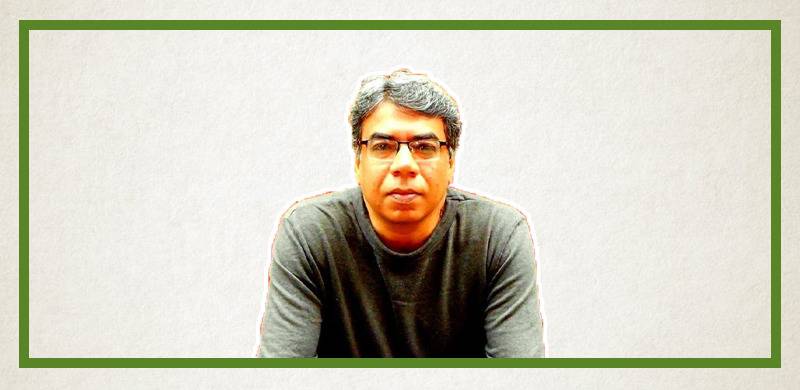
Nadeem F Paracha explains the history of students politics in Pakistan in this pictorial feature.
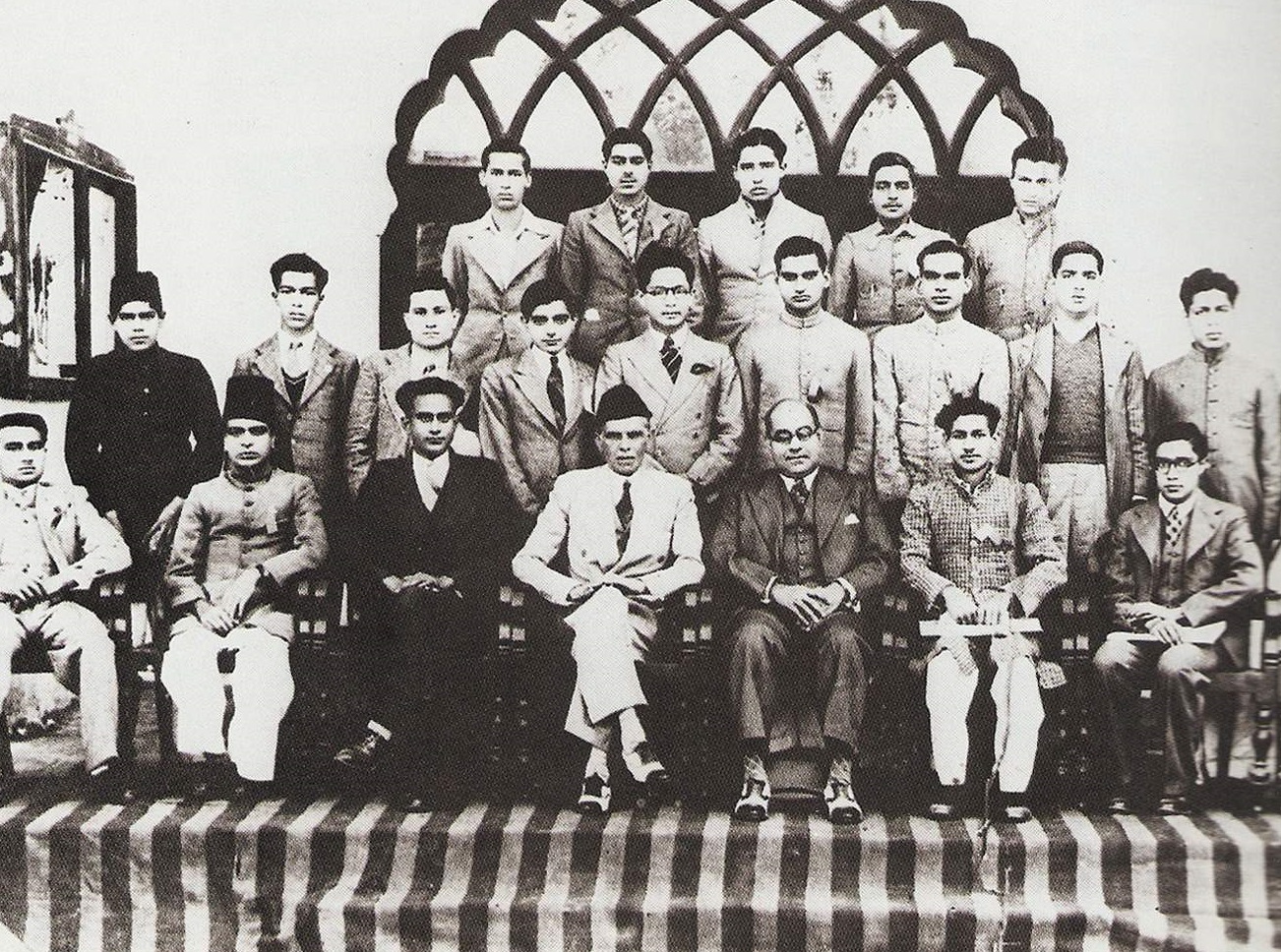
1937: The All India Muslim Students Federation (AIMSF) is formed as the student-wing of the All India Muslim League.
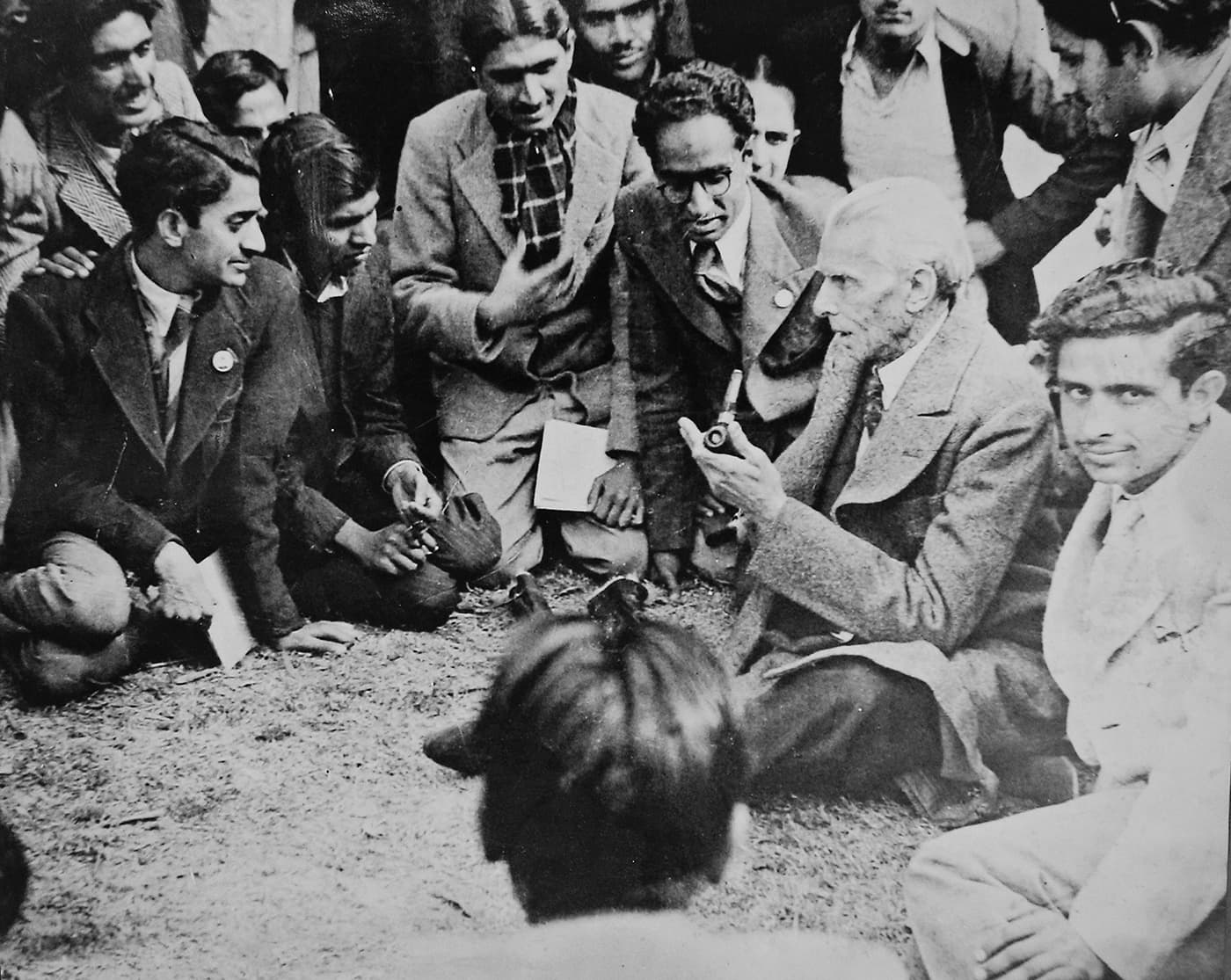
January 1946: AIML chief, Muhammad Ali Jinnah chats with some members of AIMSF at Lahore’s Punjab University. AIMSF played an active role in generating support for AIML among Punjab’s Muslim youth during that year’s provincial elections in India.
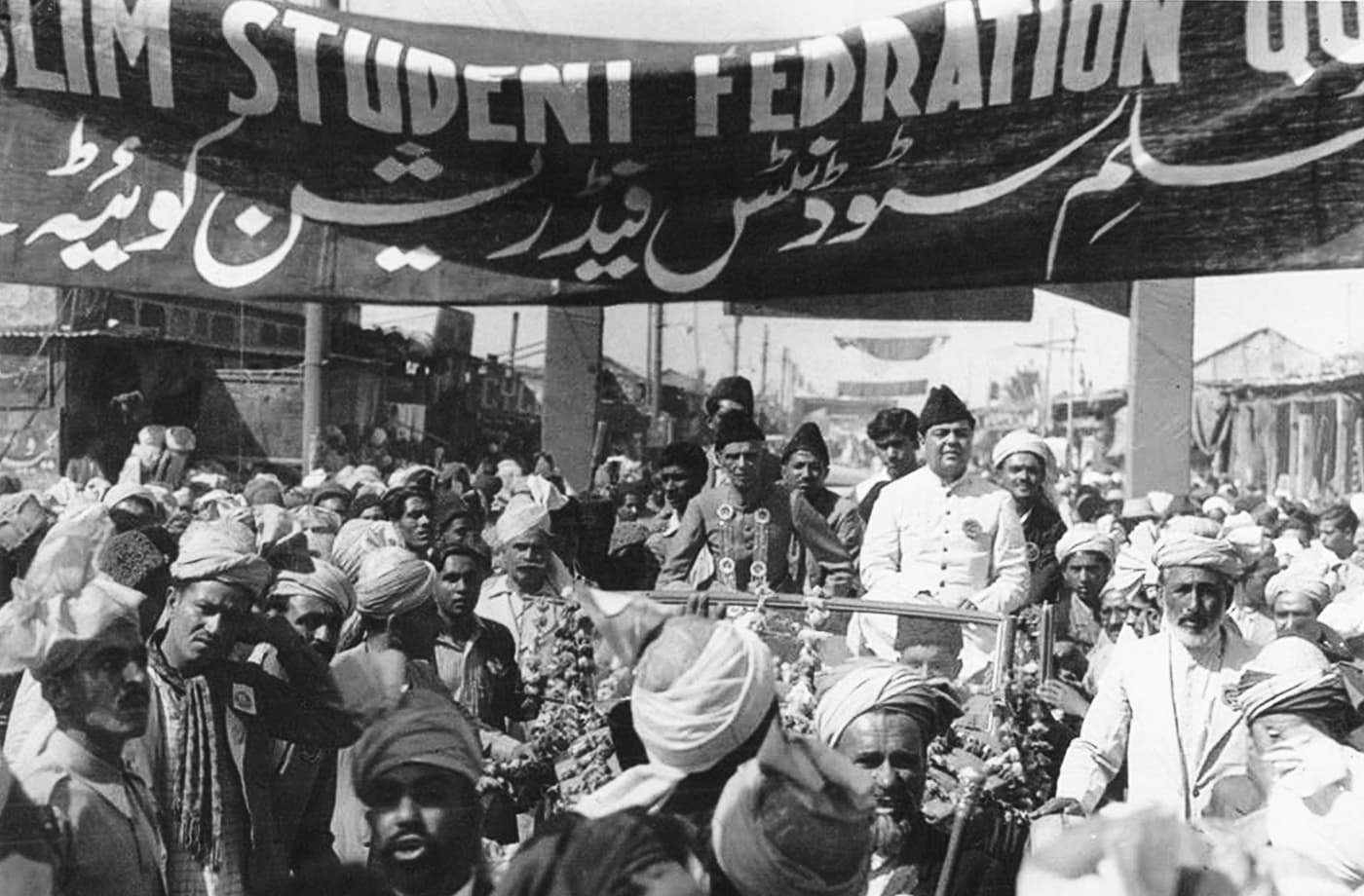
February 1948: AIMSF that became Muslim Students Federation (MSF) after the creation of Pakistan in 1947, organized a rousing welcome for Muhammad Ali Jinnah’s crucial trip to Balochistan. Even though much of the province had become part of the new country, areas ruled by the Khan of Kalat had decided to remain independent. Jinnah travelled to Balochistan to convince the Khan to join the federation.
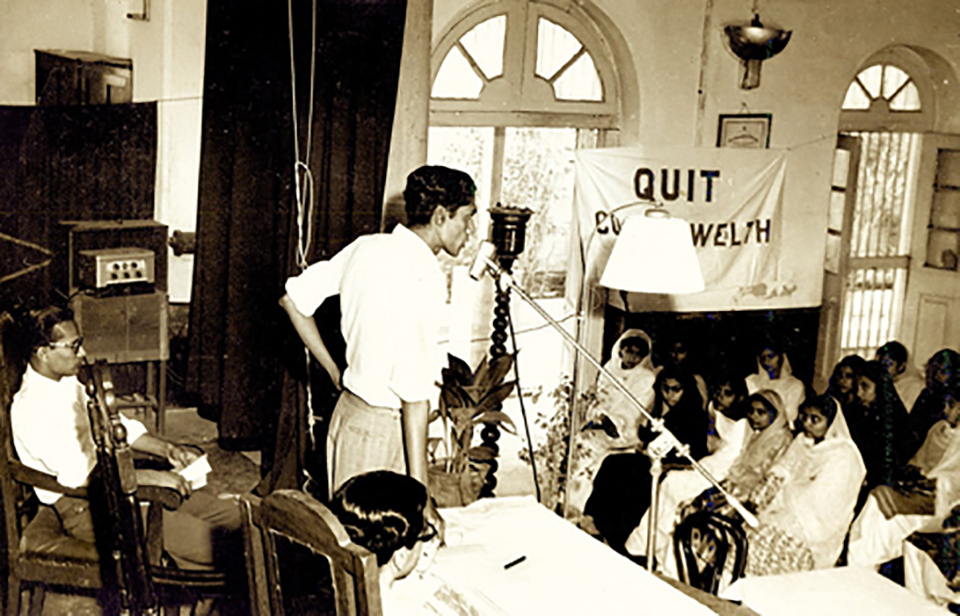
1950: The Democratic Students Federation (DSF) is formed in Karachi. The outfit appeared from the vacuum created by the disintegration of MSF. DSF was indirectly backed by the Communist Party of Pakistan (CPP).
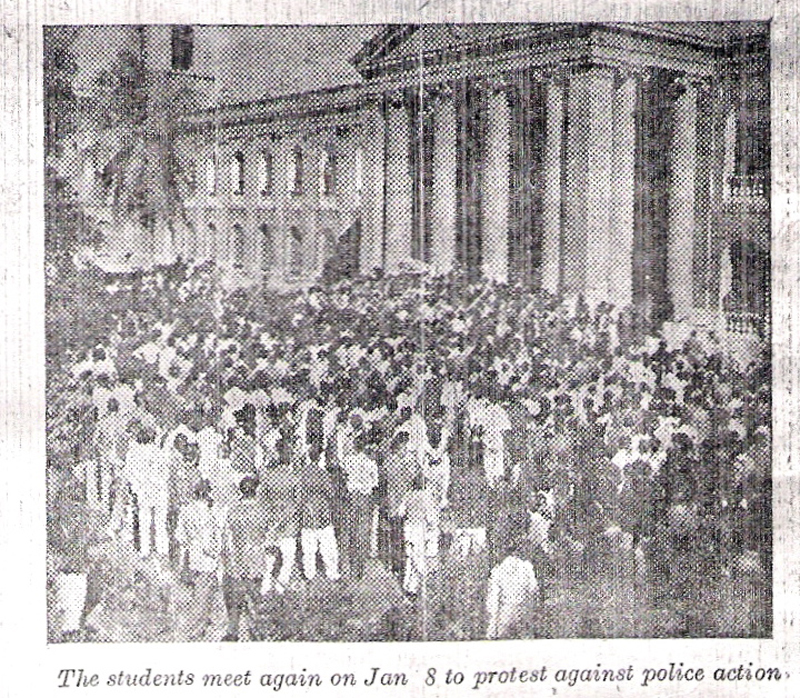
January 1953: Protests organized in Karachi by DSF against the Education Minister turn violent and at least 8 students are killed.
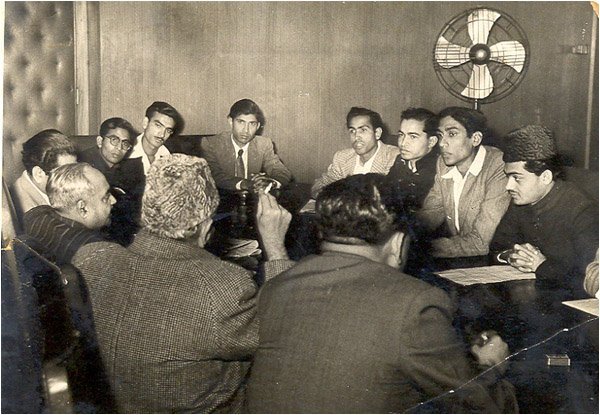
After the violence, the Education Minister agrees to meet DSF leaders. He agrees to all the demands of the students. These include a decrease in tuition fee, better facilities at universities and colleges and the building of a brand new campus of the Karachi University.
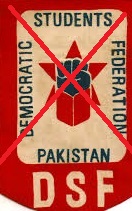
1954: DSF is banned by the government, along with its ‘mother party,’ the Communist Party of Pakistan.
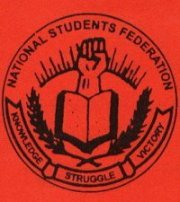
1955: National Students Federation (NSF) is formed. Even though the outfit was initially formed as a pro-government party, it was soon ‘infiltrated’ by former DSF members and leftists who changed its ideological orientation. In 1958 NSF became affiliated with the left-wing National Awami Party (NAP).
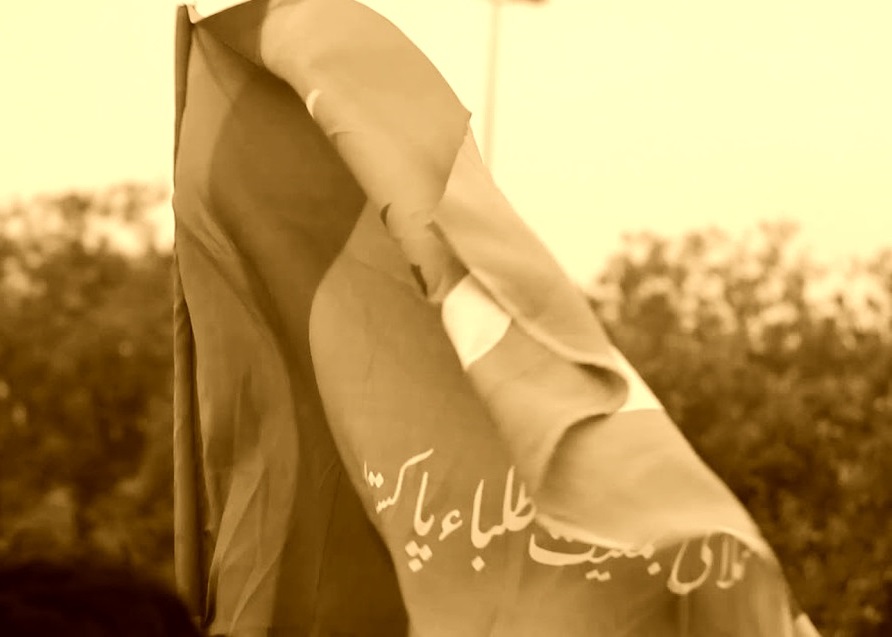
1958: Islami Jamiat Taleba (IJT) enters student politics. Even though formed in 1947 as the student-wing of the Jamat-i-Islami (JI), IJT was first allowed to take part in student politics by JI in 1958.
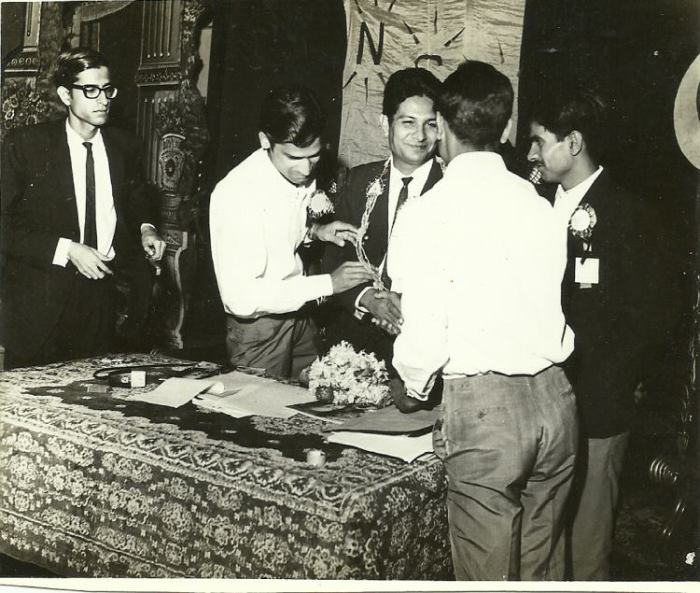
1964: Meraj Muhammad Khan (third from left) and Rasheed Hassan Khan (first from left) became the two main pillars of NSF as the party rapidly evolved into becoming the largest progressive student outfit in the country. Both had been expelled from the Karachi University in 1963 for organizing protests against the university’s Vice Chancellor who they accused of supporting the IJT.
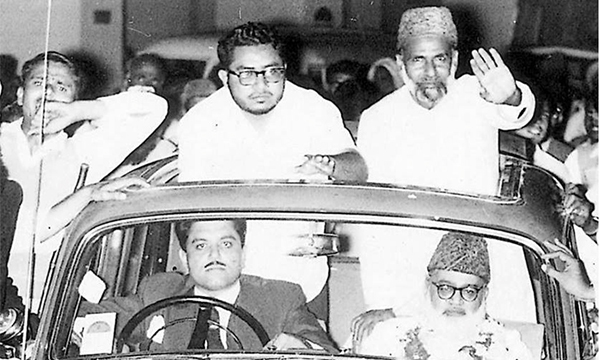
1964: IJT members with JI chief Abul Ala Maududi. The JI was banned in 1964 by the Ayub Khan regime. The same year the Supreme Court overturned the ban. IJT celebrated the decision.
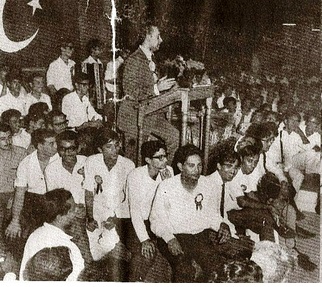
1966: In 1966, ZA Bhutto became the darling of youth (in West Pakistan) when Ayub Khan dismissed him from his cabinet. Bhutto had disagreed with him on the ceasefire agreement that Ayub signed with India after the 1965 Indo-Pak war. NSF and rebel factions of MSF supported Bhutto’s ‘stand.’
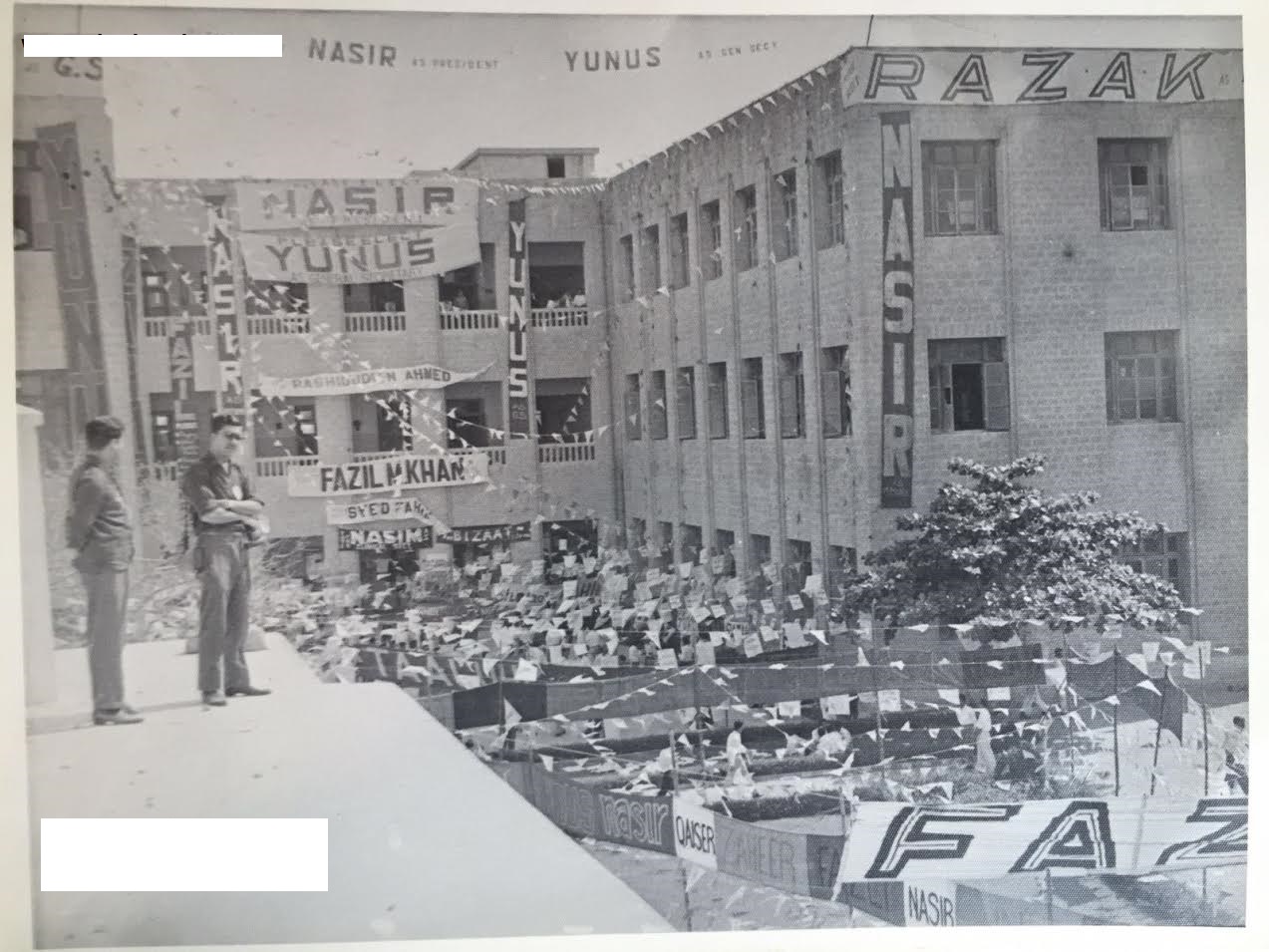
By 1967, NSF and IJT became the country’s two leading student outfits (in West Pakistan). NSF’s support during annual student union elections was concentrated in colleges of Karachi, Lahore and Rawalpindi, whereas IJT’s electoral strength lay in Karachi University and Punjab University.
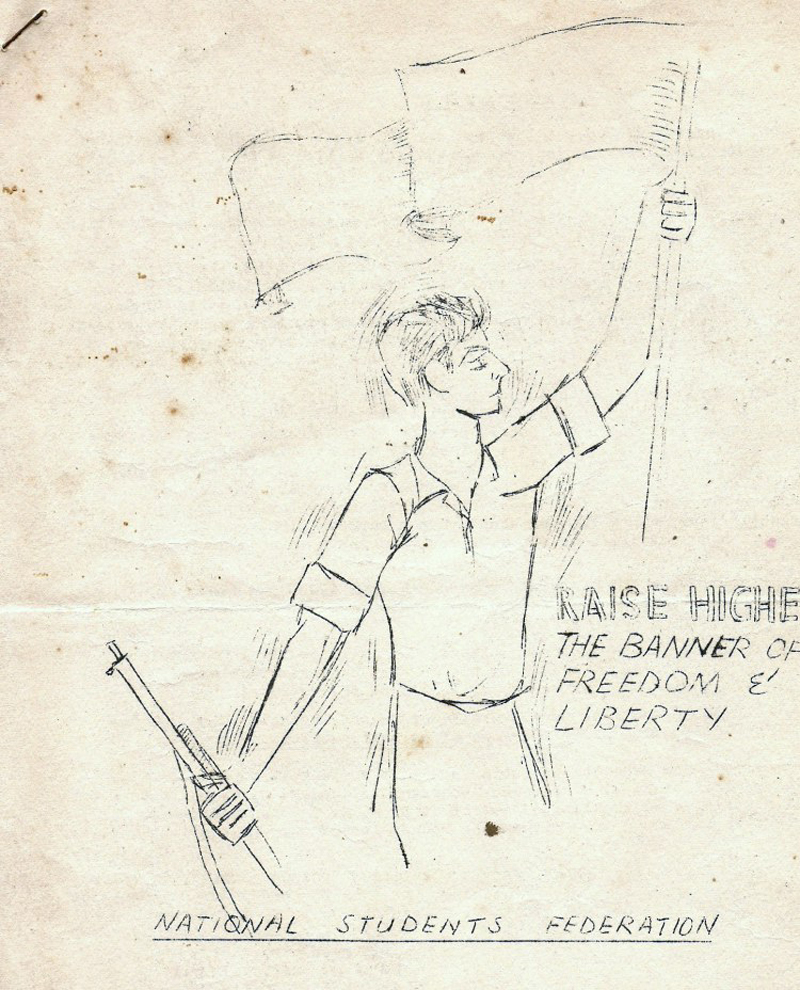
In 1967, NSF split into pro-Soviet and pro-China factions. The split came on the heels of the deepening Sino-Soviet tensions that had split many left-wing groups across the world. In Pakistan, NAP, which was backing NSF, too split into pro-China and pro-Soviet factions. The pro-Soviet faction became NAP-Wali and the pro-China faction became NAP-Bhashani. The pro-China factions of NSF became de facto student-wings of Bhutto’s Pakistan People’s Party (PPP) that was formed in 1967.
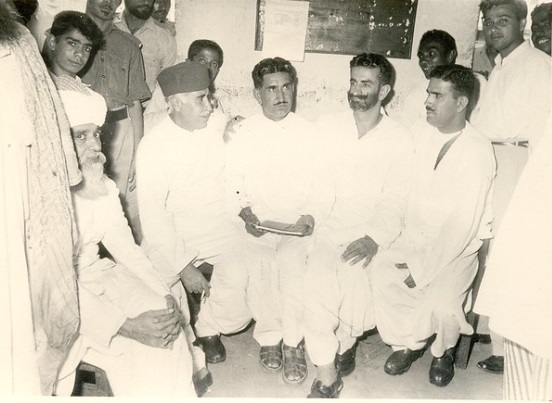
1967: Baloch Students Organization (BSO) is formed. Affiliates itself with NAP.
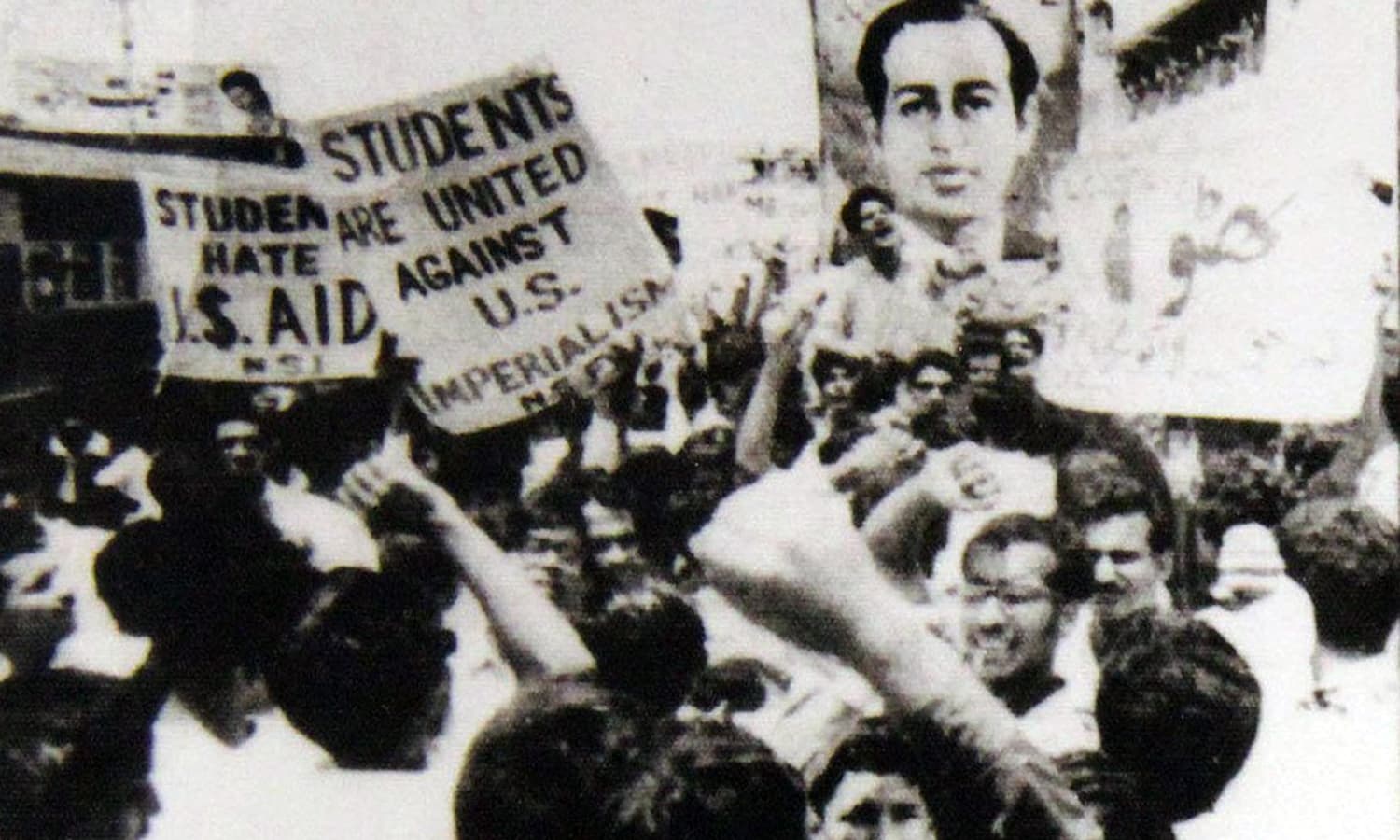
1968: NSF kick-starts a violent movement against the Ayub regime. The movement was soon joined by other student groups (including IJT) and opposition political parties. Dozens of people were killed. Ayub resigned in March 1969.
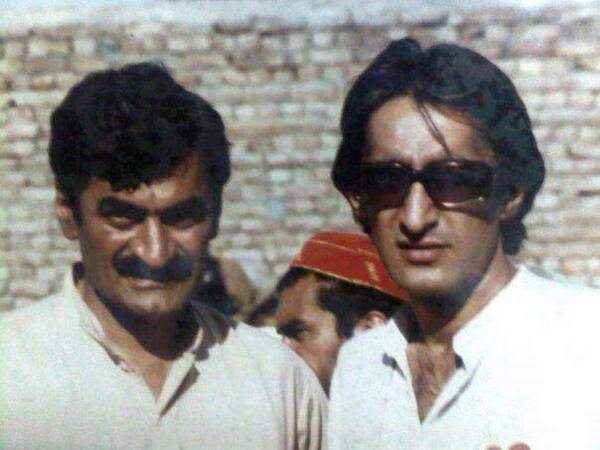
1968: Pashtun Students Federation (PkSF) is formed. Affiliates itself with NAP-Wali.
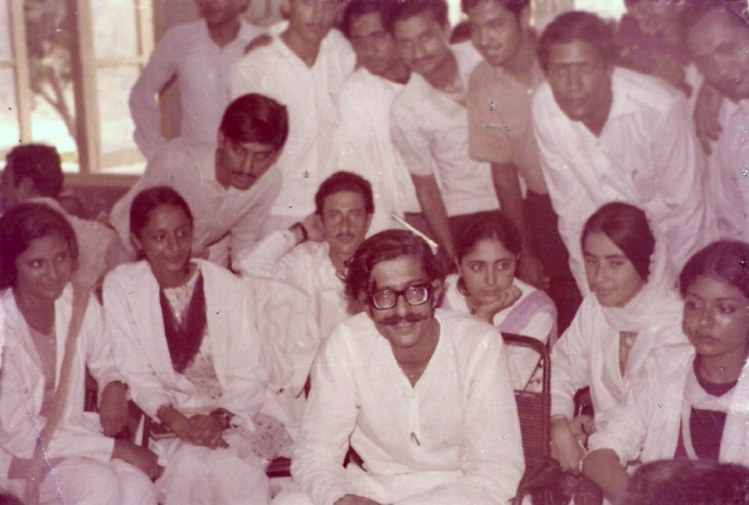
1969: As Meraj Muhammad Khan joined the PPP, Rasheed Hassan continued to lead NSF. His faction decided to support NAP-Bhashani.
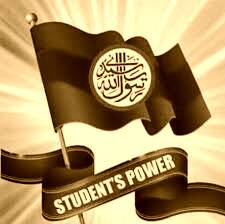
1969: Anjuman-i-Taleba Islam, the student-wing of Jamiat Ulema Islam (JUI) is formed.
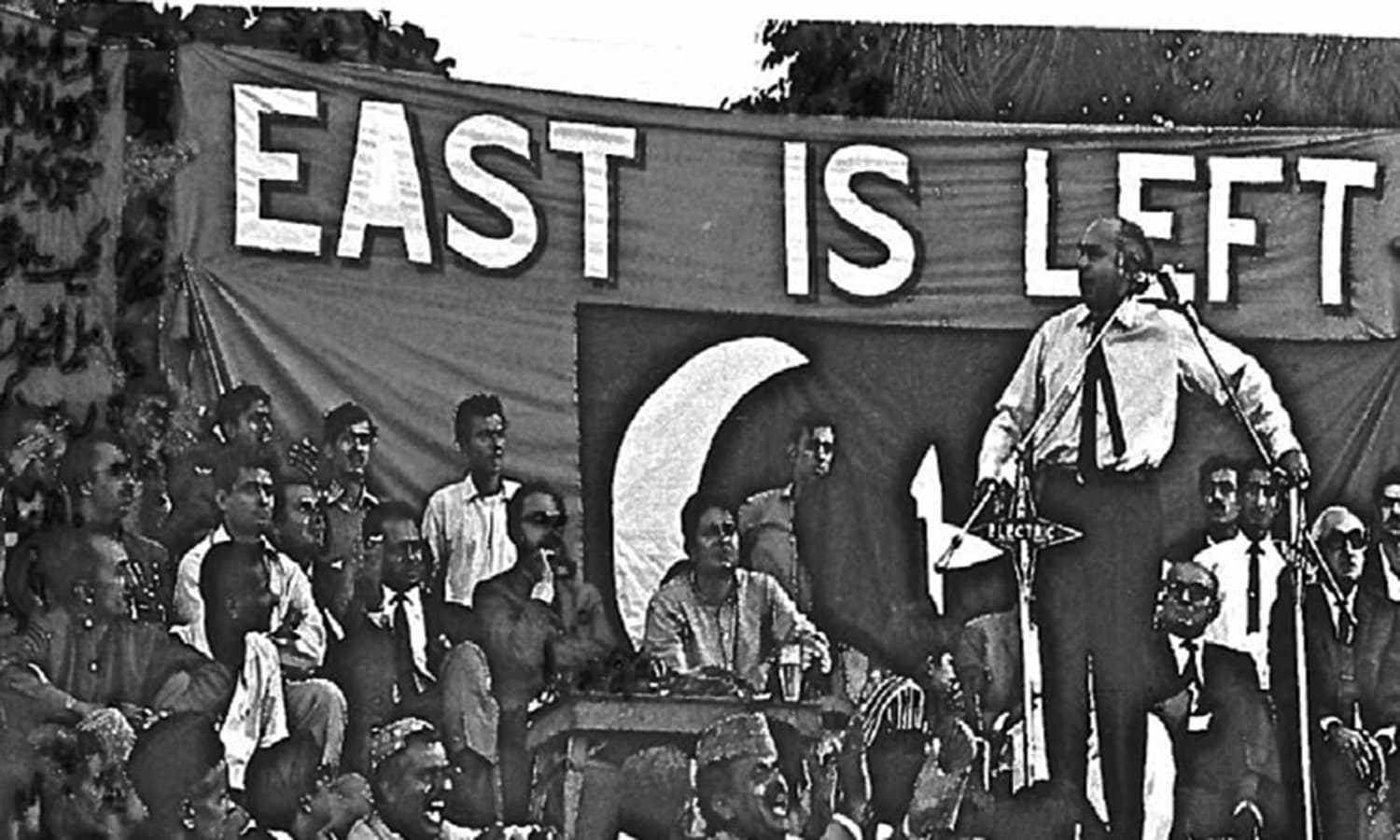
1970: ‘Student power’ in Pakistan reached a peak during the 1970 elections. Student groups were in the forefront of mobilizing support for political parties. PPP was being backed by pro-China NSF factions and MSF factions that had broken away from Ayub’s Muslim League; NAP was supported by pro-Soviet NSF factions; and JI by its student-wing, the IJT. In East Pakistan, the major Bengali nationalist party, the Awami League, was being supported by its youth-wing, the Chhatra League.
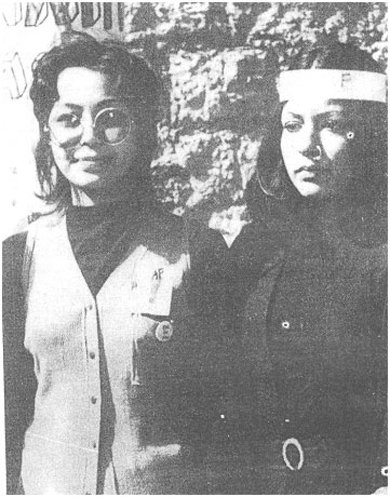
1972: The student-wing of PPP, the Peoples Students Federation (PSF) is formed.
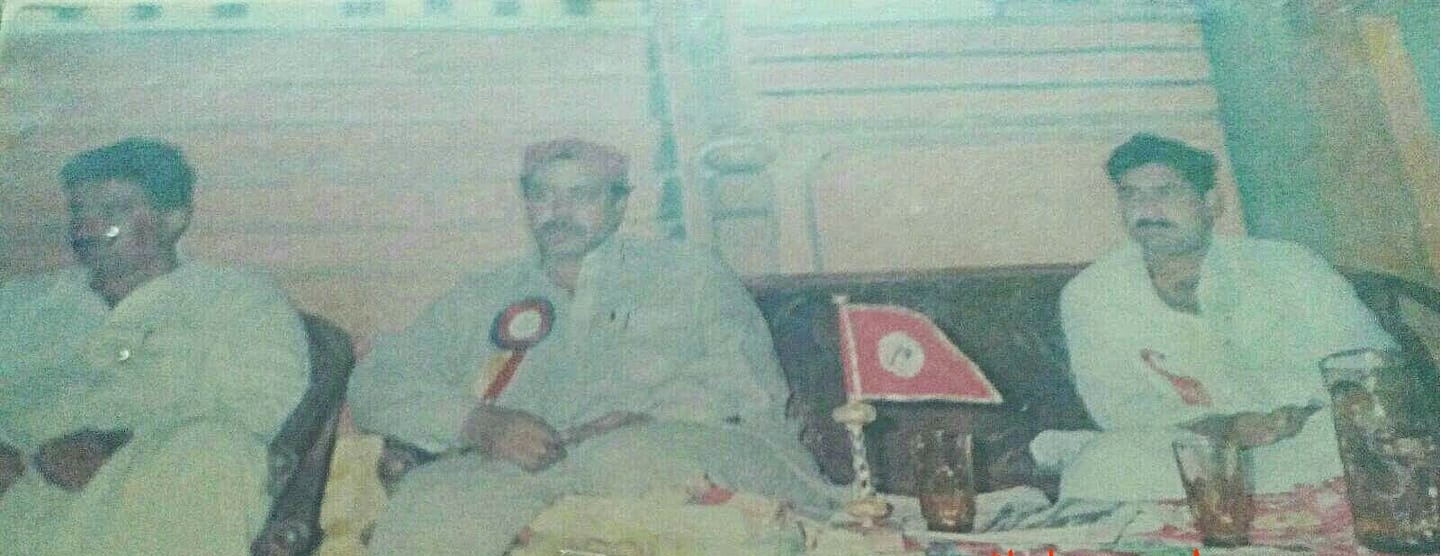
1972: The Jeeay Sindh Students Federation is formed.
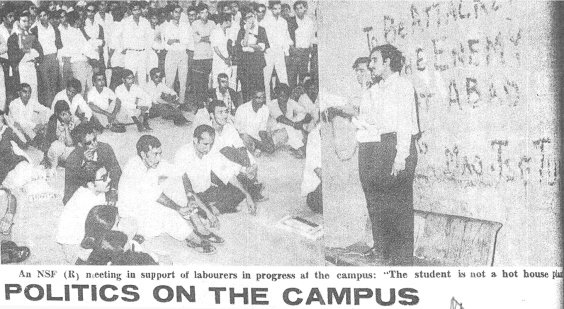
1973: NSF pulls back its support for the PPP government. It accused Bhutto of betraying the party’s socialist manifesto.
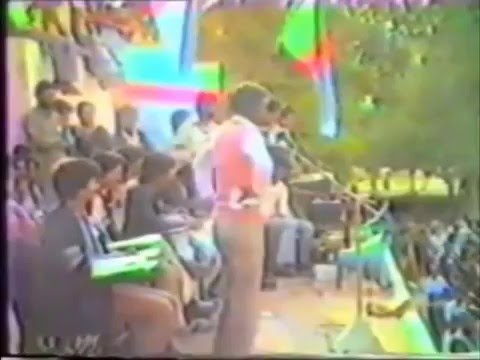
By the mid-1970s, as left-wing groups continued to splinter, IJT rose to become an electoral force on campuses across the country.
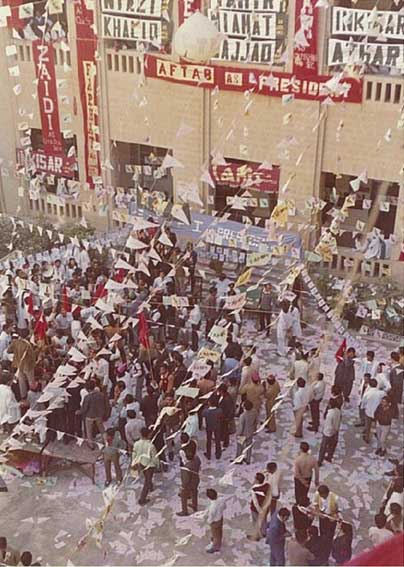
1974: The Bhutto regime streamlines student politics in the country through a Student Unions Ordinance. All state-owned colleges and universities were to hold student union elections on the same day, every year.
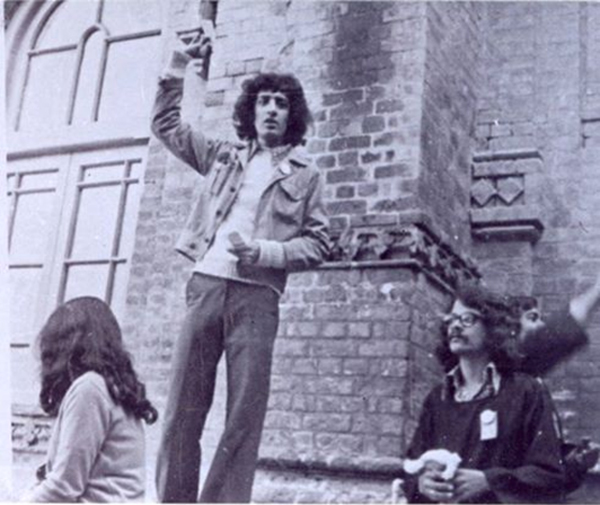
In 1975, the Liberal Students Federation (formed in 1974) broke the long winning spree of IJT at the Karachi University.
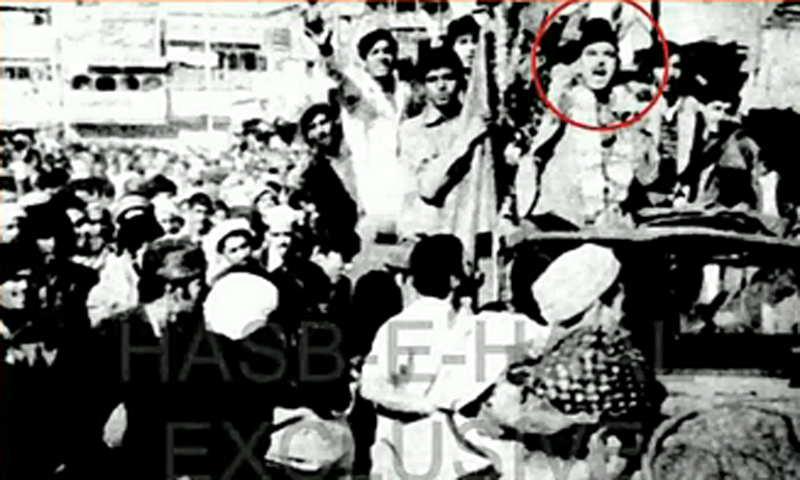
1977: The IJT played a major role in the 1977 movement against the Bhutto regime. The government was eventually toppled in a reactionary military coup by Gen Zia-ul-Haq.
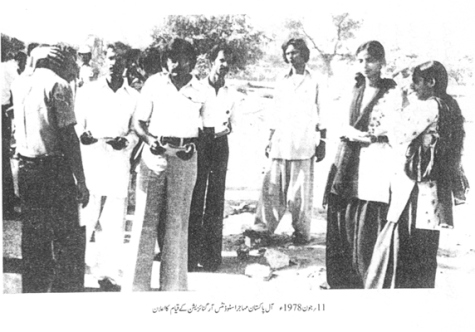
1978: The All Pakistan Mohajir Students Organization (APMSO) is formed.
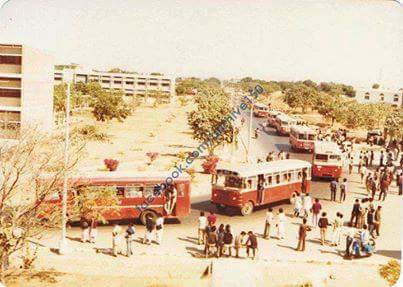
1979: The AK-47 is used for the first time in student politics in Pakistan. Rana Javed, an IJT muscleman, fired shots from his AK-47 at a gathering of progressive students at Karachi University.
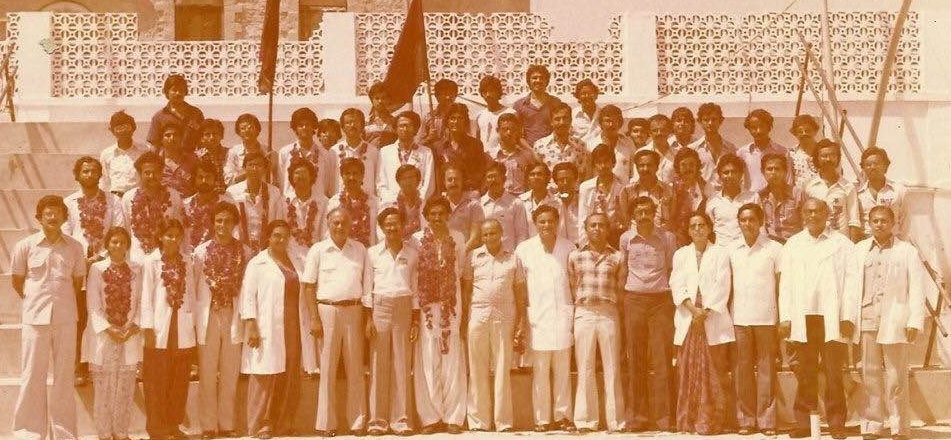
1979: Elected student union members at Dow Medical College raise black flags as a protest against the Zia dictatorship.
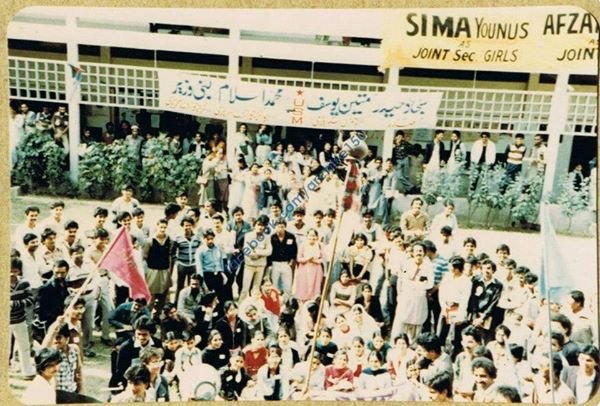
1981: The United Students Movement (USM) is formed in Karachi. It was an anti-Zia and anti-IJT coalition of progressive student parties.
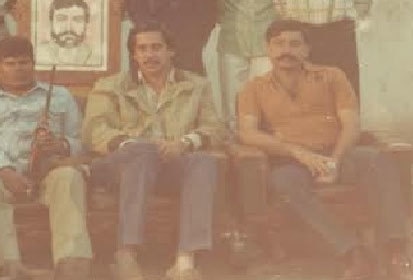
1981: The Karachi President of PSF, Salamullah Tipu (right) joins the left-wing urban guerrilla outfit, the Al-Zulfikar. In March 1981, he along with two other men hijacked a PIA plane.
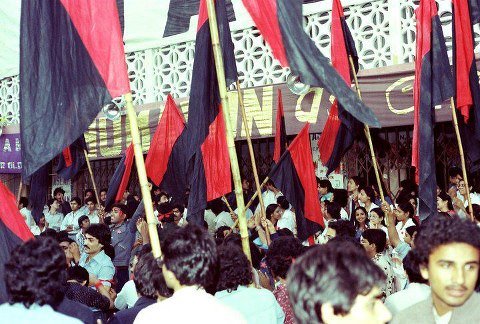
1983: The last countrywide student union elections (under the 1974 Ordinance) are held. Progressive student alliances topple the electoral hegemony of IJT across colleges in Karachi (Sindh) and the Punjab.
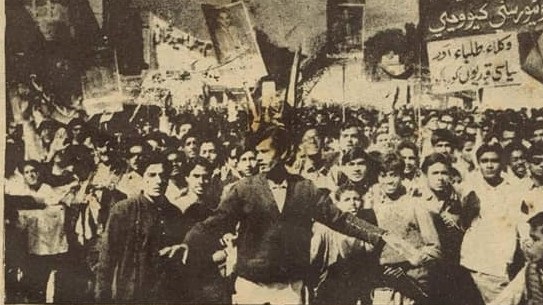
In 1984, the Zia regime banned student unions. Student parties, including the IJT, vehemently protested against the ban.
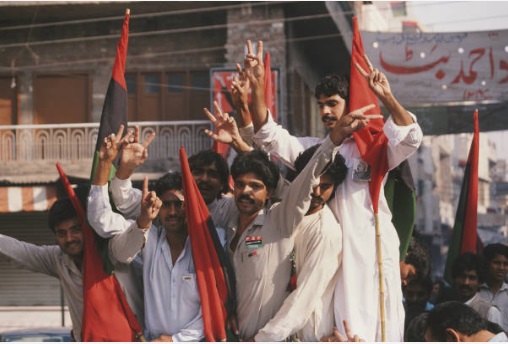
1989: The first Benazir Bhutto regime removes the ban on student unions and fresh elections are held across Punjab’s colleges and universities. MSF, PSF, and ATI were the biggest winners. But soon, serious violence broke out between MSF and IJT at Punjab University.
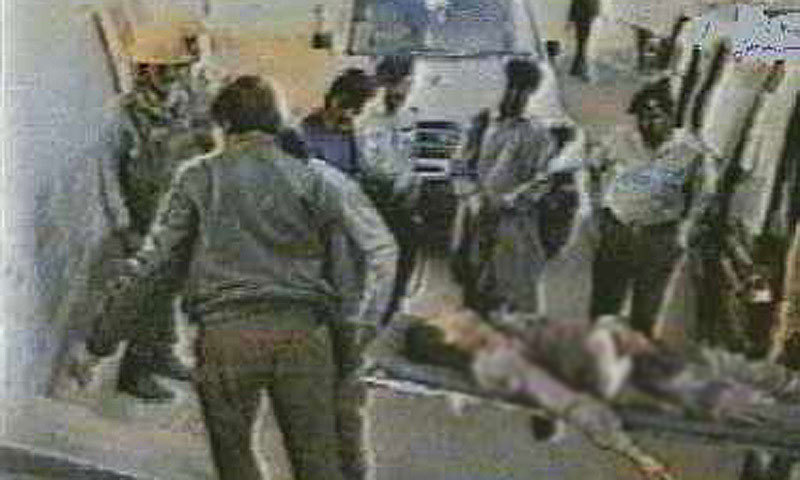
Between 1989 and 1990, deadly violence between PSF and APMSO in Karachi took numerous lives.
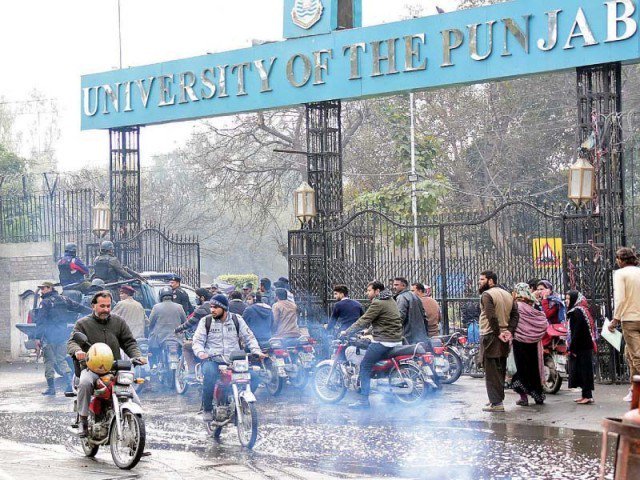
1993: After violence between MSF and IJT intensified at the Punjab University, the Supreme Court admitted a petition against the 1989 restoration of student unions. The court slapped a complete ban on political activities in universities and colleges.
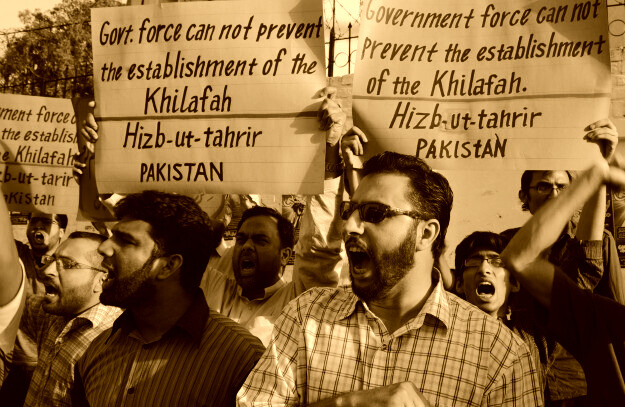
From the mid-1990s onwards, clandestine Islamic groups began to infiltrate public and private colleges and universities, pretending to be apolitical and evangelical in nature.
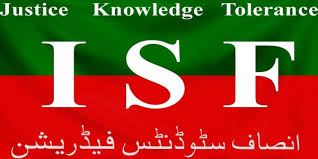
1996: Insaf Students Federation (ISF), the student-wing of Pakistan Tehreek-i-Insaf (PTI) is formed.
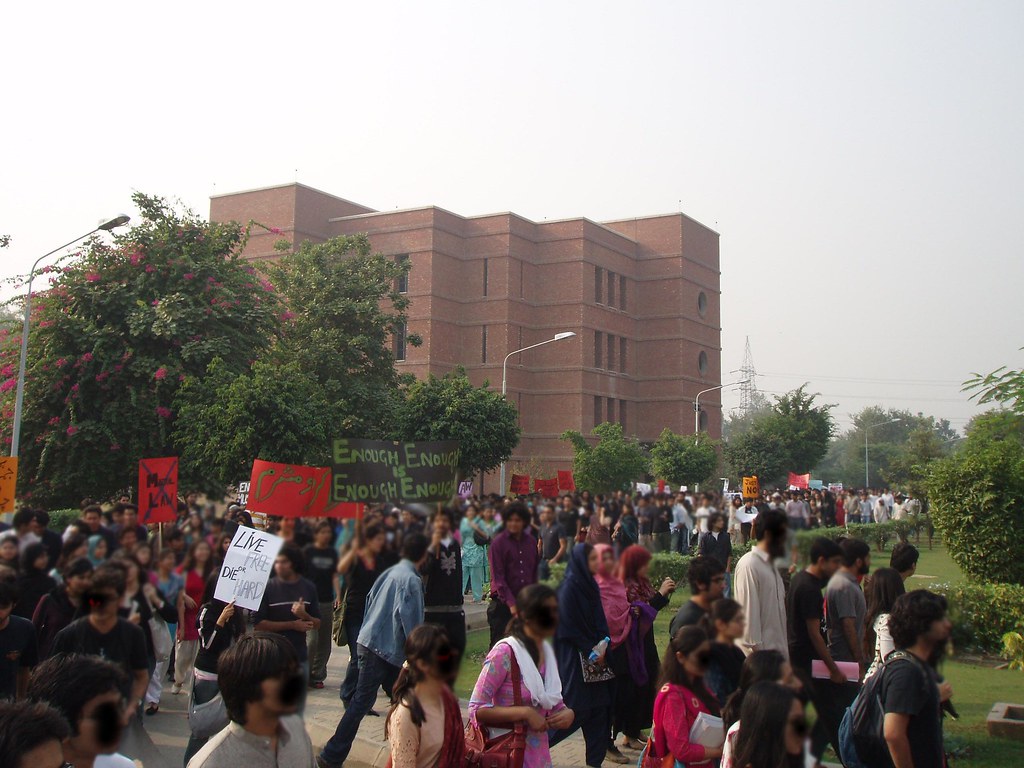
2007: Violence against the Musharraf regime erupted on Punjab’s private campuses.
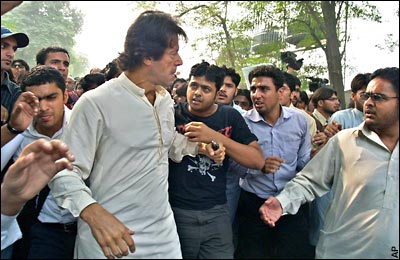
2007: Chairman of PTI, Imran Khan, is forcibly evicted by members of the IJT from the Punjab University.
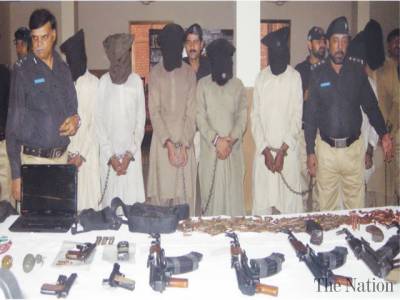
2017: Security forces warn that various campuses had become breeding grounds of ‘middle-class religious militants’ indoctrinated by outfits pretending to be apolitical.
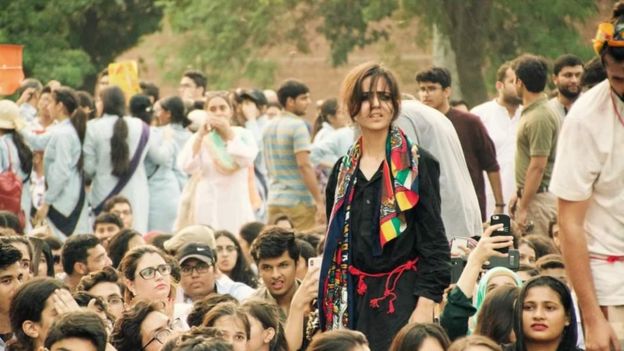
2019: The Progressive Students Collective kick-starts a campaign to revive student unions in Pakistan.

1937: The All India Muslim Students Federation (AIMSF) is formed as the student-wing of the All India Muslim League.

January 1946: AIML chief, Muhammad Ali Jinnah chats with some members of AIMSF at Lahore’s Punjab University. AIMSF played an active role in generating support for AIML among Punjab’s Muslim youth during that year’s provincial elections in India.

February 1948: AIMSF that became Muslim Students Federation (MSF) after the creation of Pakistan in 1947, organized a rousing welcome for Muhammad Ali Jinnah’s crucial trip to Balochistan. Even though much of the province had become part of the new country, areas ruled by the Khan of Kalat had decided to remain independent. Jinnah travelled to Balochistan to convince the Khan to join the federation.

1950: The Democratic Students Federation (DSF) is formed in Karachi. The outfit appeared from the vacuum created by the disintegration of MSF. DSF was indirectly backed by the Communist Party of Pakistan (CPP).

January 1953: Protests organized in Karachi by DSF against the Education Minister turn violent and at least 8 students are killed.

After the violence, the Education Minister agrees to meet DSF leaders. He agrees to all the demands of the students. These include a decrease in tuition fee, better facilities at universities and colleges and the building of a brand new campus of the Karachi University.

1954: DSF is banned by the government, along with its ‘mother party,’ the Communist Party of Pakistan.

1955: National Students Federation (NSF) is formed. Even though the outfit was initially formed as a pro-government party, it was soon ‘infiltrated’ by former DSF members and leftists who changed its ideological orientation. In 1958 NSF became affiliated with the left-wing National Awami Party (NAP).

1958: Islami Jamiat Taleba (IJT) enters student politics. Even though formed in 1947 as the student-wing of the Jamat-i-Islami (JI), IJT was first allowed to take part in student politics by JI in 1958.

1964: Meraj Muhammad Khan (third from left) and Rasheed Hassan Khan (first from left) became the two main pillars of NSF as the party rapidly evolved into becoming the largest progressive student outfit in the country. Both had been expelled from the Karachi University in 1963 for organizing protests against the university’s Vice Chancellor who they accused of supporting the IJT.

1964: IJT members with JI chief Abul Ala Maududi. The JI was banned in 1964 by the Ayub Khan regime. The same year the Supreme Court overturned the ban. IJT celebrated the decision.

1966: In 1966, ZA Bhutto became the darling of youth (in West Pakistan) when Ayub Khan dismissed him from his cabinet. Bhutto had disagreed with him on the ceasefire agreement that Ayub signed with India after the 1965 Indo-Pak war. NSF and rebel factions of MSF supported Bhutto’s ‘stand.’

By 1967, NSF and IJT became the country’s two leading student outfits (in West Pakistan). NSF’s support during annual student union elections was concentrated in colleges of Karachi, Lahore and Rawalpindi, whereas IJT’s electoral strength lay in Karachi University and Punjab University.

In 1967, NSF split into pro-Soviet and pro-China factions. The split came on the heels of the deepening Sino-Soviet tensions that had split many left-wing groups across the world. In Pakistan, NAP, which was backing NSF, too split into pro-China and pro-Soviet factions. The pro-Soviet faction became NAP-Wali and the pro-China faction became NAP-Bhashani. The pro-China factions of NSF became de facto student-wings of Bhutto’s Pakistan People’s Party (PPP) that was formed in 1967.

1967: Baloch Students Organization (BSO) is formed. Affiliates itself with NAP.

1968: NSF kick-starts a violent movement against the Ayub regime. The movement was soon joined by other student groups (including IJT) and opposition political parties. Dozens of people were killed. Ayub resigned in March 1969.

1968: Pashtun Students Federation (PkSF) is formed. Affiliates itself with NAP-Wali.

1969: As Meraj Muhammad Khan joined the PPP, Rasheed Hassan continued to lead NSF. His faction decided to support NAP-Bhashani.

1969: Anjuman-i-Taleba Islam, the student-wing of Jamiat Ulema Islam (JUI) is formed.

1970: ‘Student power’ in Pakistan reached a peak during the 1970 elections. Student groups were in the forefront of mobilizing support for political parties. PPP was being backed by pro-China NSF factions and MSF factions that had broken away from Ayub’s Muslim League; NAP was supported by pro-Soviet NSF factions; and JI by its student-wing, the IJT. In East Pakistan, the major Bengali nationalist party, the Awami League, was being supported by its youth-wing, the Chhatra League.

1972: The student-wing of PPP, the Peoples Students Federation (PSF) is formed.

1972: The Jeeay Sindh Students Federation is formed.

1973: NSF pulls back its support for the PPP government. It accused Bhutto of betraying the party’s socialist manifesto.

By the mid-1970s, as left-wing groups continued to splinter, IJT rose to become an electoral force on campuses across the country.

1974: The Bhutto regime streamlines student politics in the country through a Student Unions Ordinance. All state-owned colleges and universities were to hold student union elections on the same day, every year.

In 1975, the Liberal Students Federation (formed in 1974) broke the long winning spree of IJT at the Karachi University.

1977: The IJT played a major role in the 1977 movement against the Bhutto regime. The government was eventually toppled in a reactionary military coup by Gen Zia-ul-Haq.

1978: The All Pakistan Mohajir Students Organization (APMSO) is formed.

1979: The AK-47 is used for the first time in student politics in Pakistan. Rana Javed, an IJT muscleman, fired shots from his AK-47 at a gathering of progressive students at Karachi University.

1979: Elected student union members at Dow Medical College raise black flags as a protest against the Zia dictatorship.

1981: The United Students Movement (USM) is formed in Karachi. It was an anti-Zia and anti-IJT coalition of progressive student parties.

1981: The Karachi President of PSF, Salamullah Tipu (right) joins the left-wing urban guerrilla outfit, the Al-Zulfikar. In March 1981, he along with two other men hijacked a PIA plane.

1983: The last countrywide student union elections (under the 1974 Ordinance) are held. Progressive student alliances topple the electoral hegemony of IJT across colleges in Karachi (Sindh) and the Punjab.

In 1984, the Zia regime banned student unions. Student parties, including the IJT, vehemently protested against the ban.

1989: The first Benazir Bhutto regime removes the ban on student unions and fresh elections are held across Punjab’s colleges and universities. MSF, PSF, and ATI were the biggest winners. But soon, serious violence broke out between MSF and IJT at Punjab University.

Between 1989 and 1990, deadly violence between PSF and APMSO in Karachi took numerous lives.

1993: After violence between MSF and IJT intensified at the Punjab University, the Supreme Court admitted a petition against the 1989 restoration of student unions. The court slapped a complete ban on political activities in universities and colleges.

From the mid-1990s onwards, clandestine Islamic groups began to infiltrate public and private colleges and universities, pretending to be apolitical and evangelical in nature.

1996: Insaf Students Federation (ISF), the student-wing of Pakistan Tehreek-i-Insaf (PTI) is formed.

2007: Violence against the Musharraf regime erupted on Punjab’s private campuses.

2007: Chairman of PTI, Imran Khan, is forcibly evicted by members of the IJT from the Punjab University.

2017: Security forces warn that various campuses had become breeding grounds of ‘middle-class religious militants’ indoctrinated by outfits pretending to be apolitical.

2019: The Progressive Students Collective kick-starts a campaign to revive student unions in Pakistan.
